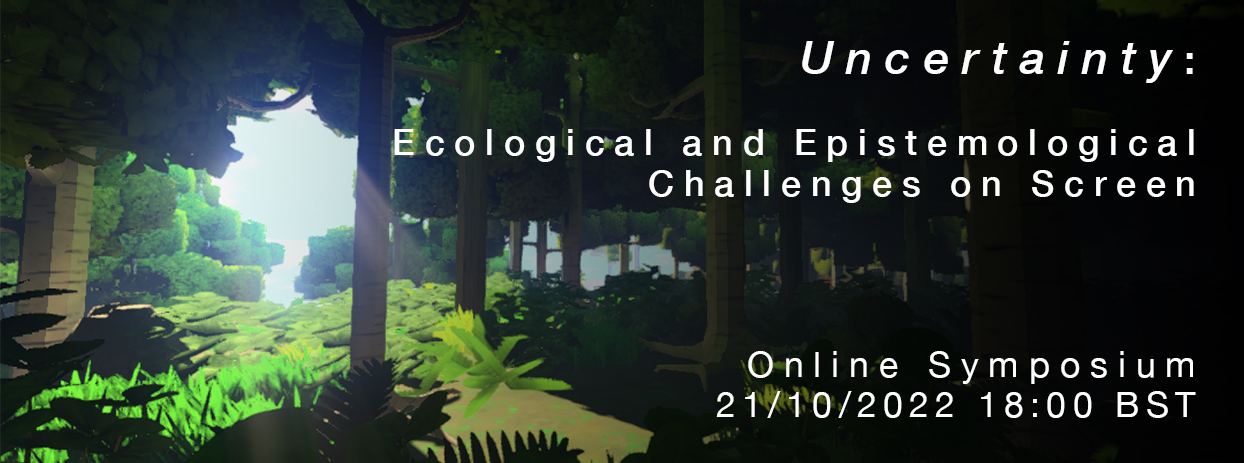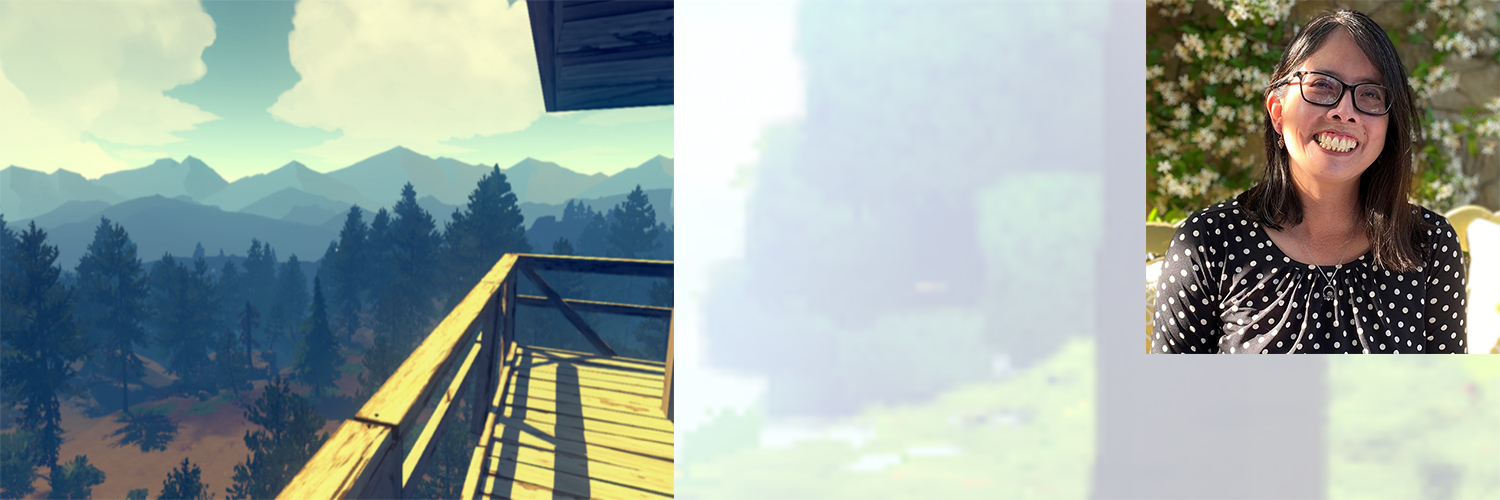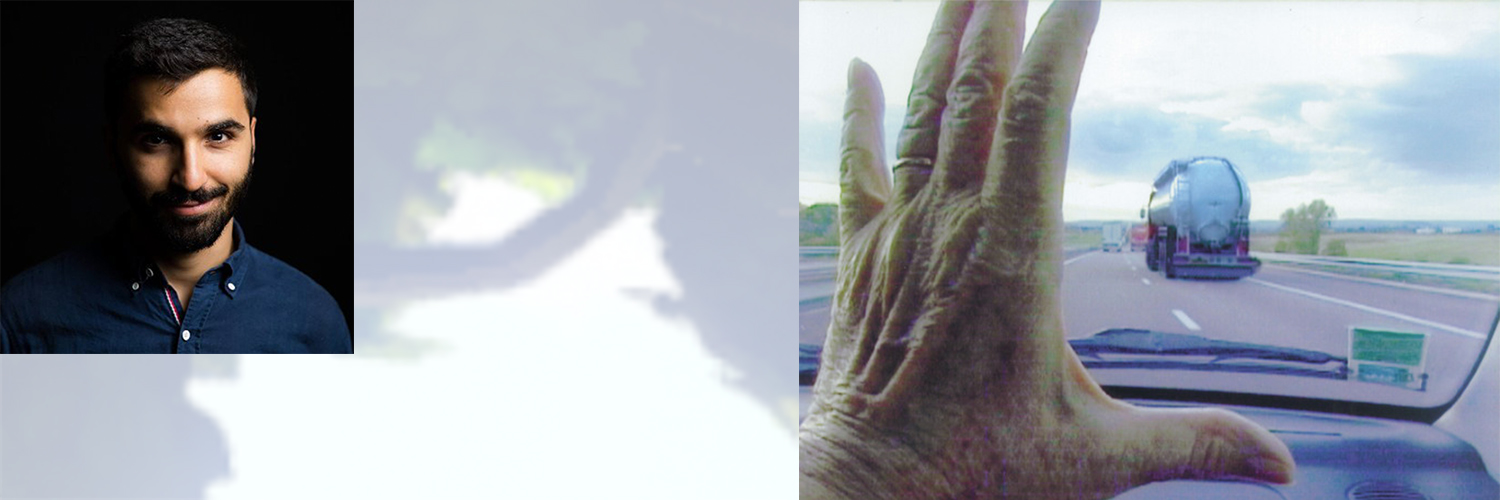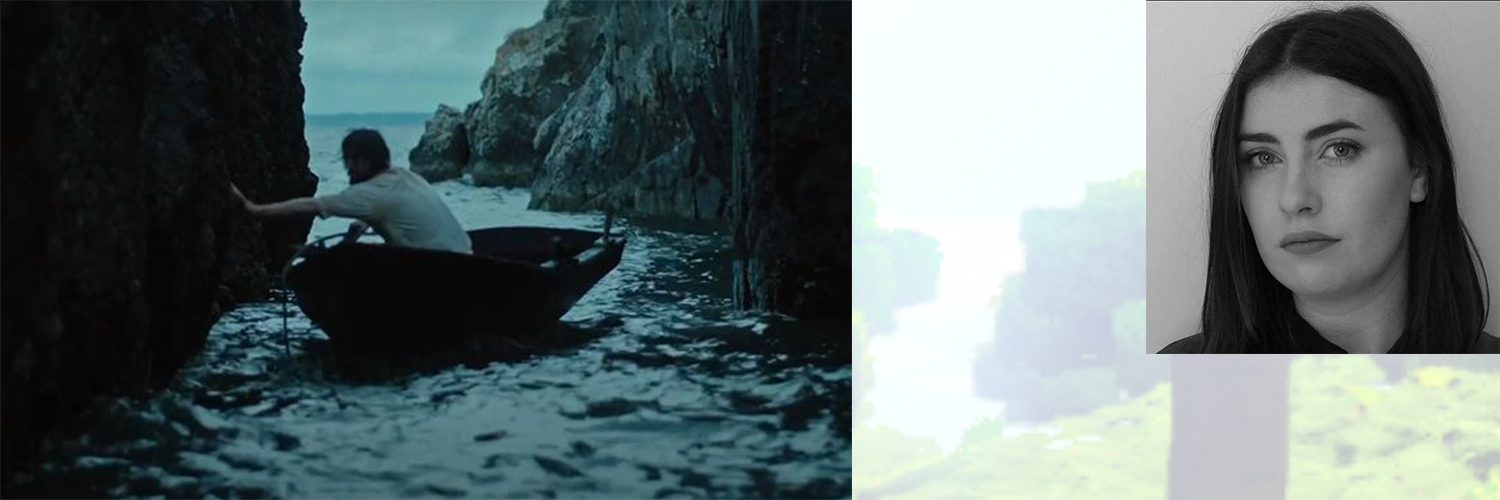In This Section
- Home
- About Us
- Study with Us
- FMT Doctoral Studies
- Research
- CARPE
- Collaborations
- EDI
- People
- Film
- Music
- Theatre

Friday October 21st 18:00 BST - Online
Attendance is free but please register HERE to book your place and to receive a link to the event.
Co- Hosted by: FOCUS Forum on Film and Screen Media Theories and Alphaville: Journal of Film and Screen Media
A state of uncertainty is primarily thought of as a cause for anxiety and worry. It disrupts our daily scheduled lives and impacts upon our comforts. Conversely, symptoms of uncertainty such as contradiction, conflict, and struggle are often what allow us to move forward, to progress and to develop. Uncertainty forces us to explore new avenues that we never knew existed and encourages us to be creative and resourceful in finding solutions and fresh outlooks on social issues.
As the environmental crisis remains one of the major issues facing society today, it is integral to look at how screen media is influenced by ecological concerns and in turn, how it impacts upon, and guides our perception of the environment. In this symposium, jointly hosted by FOCUS Forum on Film and Screen Media Theories and Alphaville: Journal of Film and Screen Media, our speakers explore the uncertain relationship between ecology and the screen. They discuss the far-reaching implications of cinema and gaming in the way that they engage with the environment and they propose a need for a critical ecological awareness around these media. They further suggest ways in which screen media may inspire us to relate to the environment and therefore live in alternative and sustainable ways.
Alenda Y. Chang: The Precarity of Play

Abstract: Games—whether we’re playing them on digital devices or grassy pitches—demand infrastructural support. As such, they can be surprising bellwethers of climate disruption, where the materiality and indeterminacy central to play itself must come to terms with the growing precarity of environmental conditions.
Bio: Alenda Y. Chang is an Associate Professor of Film and Media Studies at the University of California, Santa Barbara. Her book, Playing Nature: Ecology in Video Games, develops environmentally informed frameworks for understanding and designing digital games. She is also a founding co-editor of the UC Press open-access journal, Media+Environment.
Paolo Saporito: Filming Perilously with One Hand my Other Hand Gleaning: on the Environmental Ethics of Self-Reflexivity

Abstract: The cogent need to tackle the current environmental crisis has increasingly led film scholars to wonder how cinema may think, imagine and enact more sustainable lifestyles. While some scholars have emphasised cinema’s ability to inspire an alternative sensibility towards the environment via its aesthetic representation, others have criticised this approach as a form of idealisation that conceals how economic, social and political practices affect the environment. Despite their opposition, these arguments share the assumption, increasingly investigated in contemporary film philosophy, that film aesthetics have ethical significance. Approaching this issue via a case study, I will explore whether and how cinematic self-reflexivity becomes ethically significant from an environmental standpoint. Specifically, I will analyse Agnes Varda’s Les glaneurs et la glaneuse (The Gleaners and I, 2000) to show how the film’s reflection upon itself becomes a way for Varda and the camera to reflect upon their relationship with the practice of gleaning, the precariousness and unpredictability of gleaners’ lives and, more broadly, the environmental ecologies and ethics this practice and the uncertainty embedded in it entail.
Bio: Dr. Paolo Saporito is Government of Ireland-IRC Post-Doctoral Fellow in the Department of Film and Screen Media, University College Cork. His research focuses on how films, online forms of expressions and literary texts, as cultural productions, contribute to the development of viable political ecologies and sustainable ethics. His current project is titled “Positively Modern: Michelangelo Antonioni and Affirmative Cinematic Ecologies”. The project will bring contemporary philosophical definitions of alienation to bear on Antonioni’s films to study their (non)human ecologies from a post-anthropocentric perspective.
Rachel Gough: Ecologies of Promise - Ghost Town as Transformative Space

Abstract: This paper proposes to explore representations of rural Ireland’s ecology, which stand in contrast to mainstream narratives, which emphasise stasis or collapse. It will chiefly discuss the video game If Found, but also makes reference to the films Arracht (Tomás Ó Súilleabháin) and Ondine (Neil Jordan). I will examine the means by which these works offer potential routes towards rural regeneration (both social and ecological) by subverting traditional Irish conceptions of gender. Finally, this paper sets out the argument that the rural spaces in these texts, which have outlived their purpose within a capitalist system, provide a unique and potent staging, for powerful cultural change and ecological transformation.
Bio: Rachel Gough is a Film and Screen Media PhD candidate at University College Cork. Her research interests include postcolonialism, Irish cinema, ecology, video game theory, representations of history, folklore, and folk horror. She is also a creative practitioner of both film and short fiction. Her works concentrate on the intersection between memory and the imagined and have been screened and published nationally.
